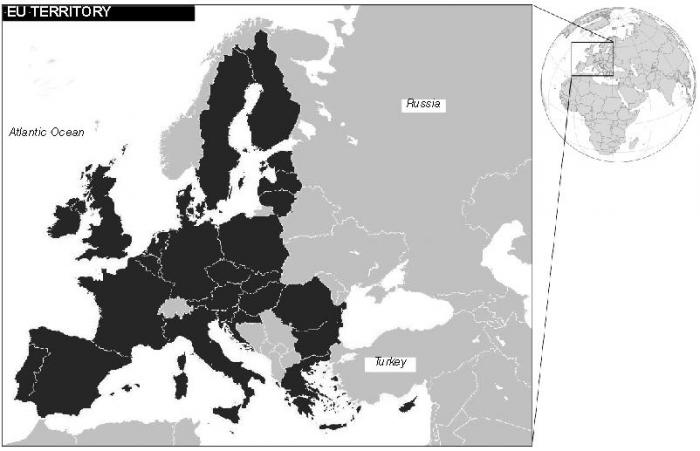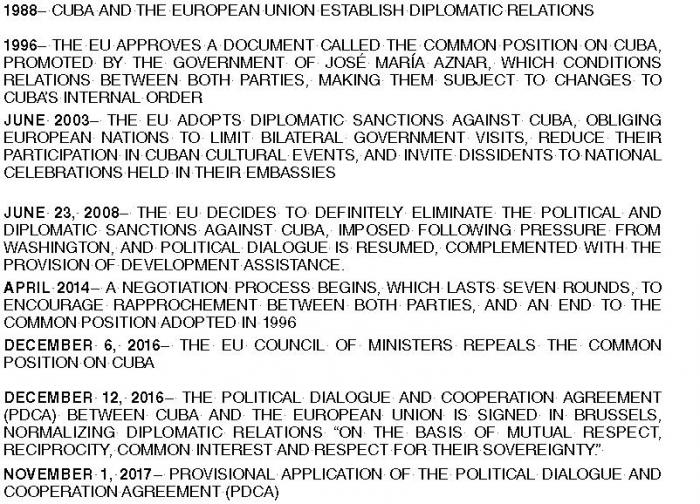
On November 1, 2017 Cuba and the European Union (EU) opened a new chapter in bilateral relations with the provisional application of the Political Dialogue and Cooperation Agreement (PDCA).
In a press release at that time, Cuba’s Ministry of Foreign Affairs noted that “the ties between Brussels and Havana have reached a level more in line with relations between Cuba and the member states which make up the community bloc, which have experienced significant progress over recent years.”
Meanwhile, in a statement by the EU, the organization noted that the agreement shows that the bloc is moving closer to Cuba, a nation that is currently undergoing a process of “economic, political and social modernization,” according to the document.
Finally, after two years of negotiations, the agreement – designed to strengthen cooperation between Cuba and the EU across a range of spheres - was signed in Brussels on December 12, 2016, at the bloc’s headquarters, by its High Representative for Foreign Affairs and Security Policy Federica Mogherini – who recently made an official visit to the island - and Cuban Foreign Minister, Bruno Rodríguez.
The PDCA not only provides a legal framework to formalize political dialogue and strengthen cooperation in various spheres, but also put an end to the so-called EU Common Position, in force since 1996, which imposed conditions on Cuba, regarded by the island as interfering in its internal affairs.

















